TASSA Board of Directors
President and Chairman of the BoardErcan Alp, Staff Member, Argonne National Laboratory
Board MembersHuseyin Abut, Professor of Electrical and Computer Engineering, San Diego State University
Serap Aksoy, Professor of Epidemiology at Yale School of Public Health
Hasan Ayaz, Professor of Biomedical Engineering, School of Biomedical Engineering, Science and Health Systems, Drexel University
Bülent Başol, Founder and Chief Technology Officer, EncoreSolar
Utkan Demirci, Professor at School of Medicine, Stanford University
Ayse Imrohoroglu, Professor of Finance and Business Economics, Marshall School of Business, University of Southern California
Asu Ozdaglar, Professor of Electrical Engineering and Computer Science in the EECS Department at the MIT
Also see Executive Committee members
(in alphabetical order)
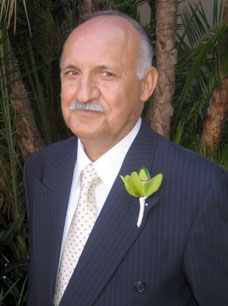 Hüseyin Abut is Professor Emeritus from Electrical and Computer Engineering at San Diego State University. At present, he is a visiting Professor at Bogazici University. He has also held visiting faculty appointments in Turkey, Japan, Singapore, Germany, and Stanford University. He served as the director of an academic research facility for more than twenty years and was the interim associate dean for research. He was involved with the establishment of a foundation university in Turkey and the Nanyang Technological University in Singapore during their initial kick-off years in the nineties. He also served as the VP for Research and Development of a high-tech company in the 1980s, was the President of one and the TCO of several other high-tech startups both in the US and abroad. He has served twice at the capacity of Senior Advisor for the U.N. Programme Development. He published 8 books and 100 original articles in the field of speech processing, image processing, biometrics, and signal processing for vehicular applications. He holds two patents. His recent interests include smart devices, materials, and systems for ‘Patient-Centric Remote Medicine” for heart attack and stroke prevention. He has served as a founding associate editor for the IEEE Transactions on Speech and Audio Processing. He served at many capacities as a member, secretary, board member and senator in the academic and professional organizations including the IEEE Signal Processing Society.
Hüseyin Abut is Professor Emeritus from Electrical and Computer Engineering at San Diego State University. At present, he is a visiting Professor at Bogazici University. He has also held visiting faculty appointments in Turkey, Japan, Singapore, Germany, and Stanford University. He served as the director of an academic research facility for more than twenty years and was the interim associate dean for research. He was involved with the establishment of a foundation university in Turkey and the Nanyang Technological University in Singapore during their initial kick-off years in the nineties. He also served as the VP for Research and Development of a high-tech company in the 1980s, was the President of one and the TCO of several other high-tech startups both in the US and abroad. He has served twice at the capacity of Senior Advisor for the U.N. Programme Development. He published 8 books and 100 original articles in the field of speech processing, image processing, biometrics, and signal processing for vehicular applications. He holds two patents. His recent interests include smart devices, materials, and systems for ‘Patient-Centric Remote Medicine” for heart attack and stroke prevention. He has served as a founding associate editor for the IEEE Transactions on Speech and Audio Processing. He served at many capacities as a member, secretary, board member and senator in the academic and professional organizations including the IEEE Signal Processing Society.
He has served in the Transition Team Member of the TASSA 2010-2012 and as a member in the TASSA BOD 2012-2016. He was instrumental in putting together the TASSA Bylaws together with 2 other BOD members and was the nomination committee chair of TASSA 2012-2016.
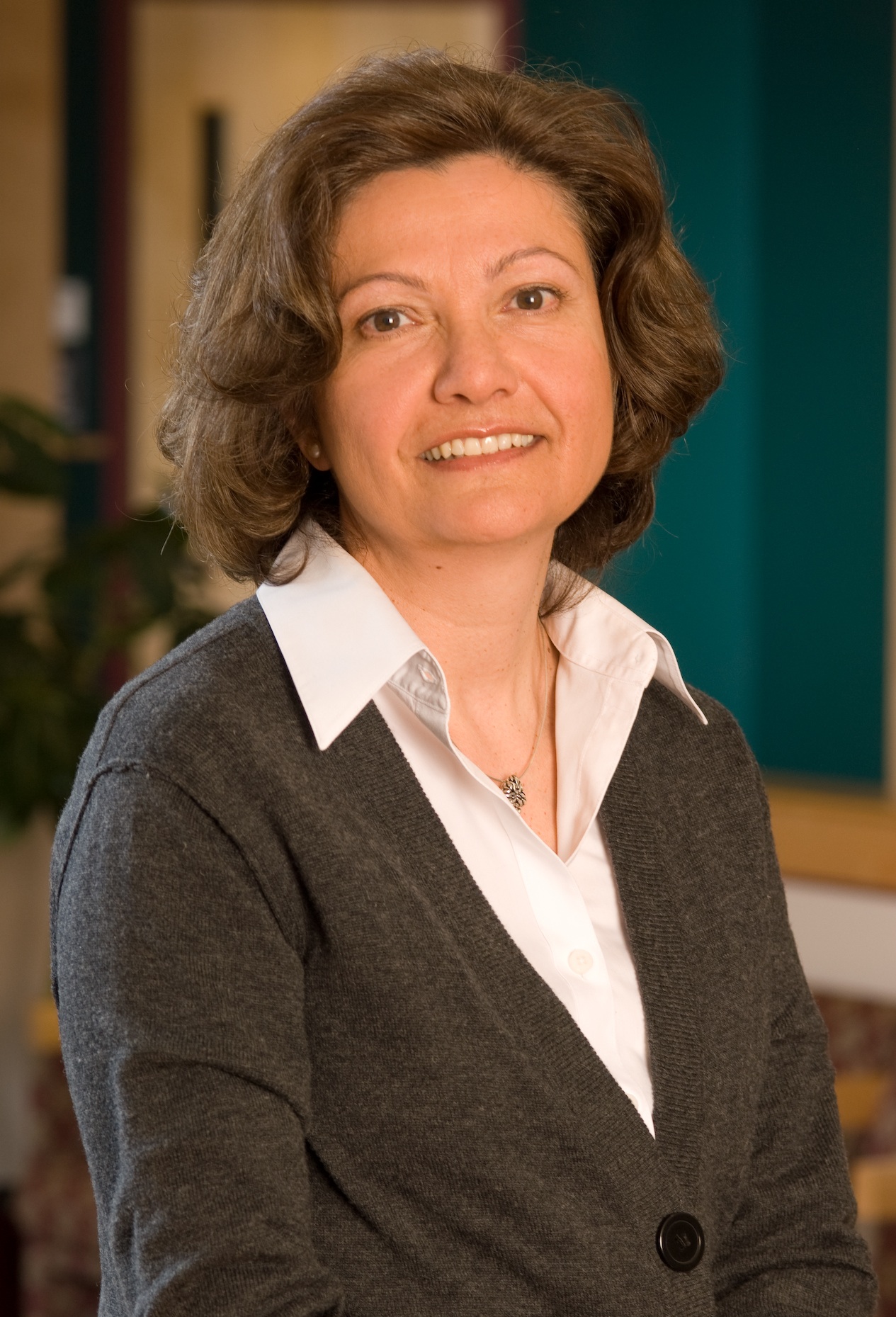 Serap Aksoy is Professor of Epidemiology at Yale School of Public Health. She is a graduate of Robert College, received her BS from Vassar College, NY and her PhD in Biology from Columbia University, NYC. After an initial postdoctoral research position, she joined the faculty of Yale School of Public Health where she chaired the Department of Epidemiology of Microbial Diseases (2002-2012, 2018, 2020). Her research focuses on the epidemiology of insect transmitted (vector borne) and zoonotic diseases. Her laboratory investigates tsetse flies and pathogenic parasites they transmit that cause fatal diseases of humans and livestock in Africa. She has pioneered novel biological control methods that reduce the ability of insects to transmit disease causing pathogens. She initiated and led an International Consortium that eventually sequenced the genome of six tsetse fly species and vastly expanded the genetic/genomics research in this neglected disease vector. She maintains extensive research and training collaborations with African institutions as well as with researchers in China, Italy and Turkey in the area of vector borne disease epidemiology and control. As Editor-in-Chief of Public Library of Sciences Neglected Tropical Diseases (2008-2020) she led efforts to build global research and publication capacity for tropical diseases of animals and humans. She often organizes workshops in scientific meetings on publication ethics and communication skills, including many that she organized with her peers in Turkey. Throughout her professional career, Aksoy has been an advocate of and innovator in Global Health; served as a dedicated mentor to students and scientists in the US and in Turkey, helping to prepare the next generation of leaders in the fields of epidemiology and zoonotic disease control.
Serap Aksoy is Professor of Epidemiology at Yale School of Public Health. She is a graduate of Robert College, received her BS from Vassar College, NY and her PhD in Biology from Columbia University, NYC. After an initial postdoctoral research position, she joined the faculty of Yale School of Public Health where she chaired the Department of Epidemiology of Microbial Diseases (2002-2012, 2018, 2020). Her research focuses on the epidemiology of insect transmitted (vector borne) and zoonotic diseases. Her laboratory investigates tsetse flies and pathogenic parasites they transmit that cause fatal diseases of humans and livestock in Africa. She has pioneered novel biological control methods that reduce the ability of insects to transmit disease causing pathogens. She initiated and led an International Consortium that eventually sequenced the genome of six tsetse fly species and vastly expanded the genetic/genomics research in this neglected disease vector. She maintains extensive research and training collaborations with African institutions as well as with researchers in China, Italy and Turkey in the area of vector borne disease epidemiology and control. As Editor-in-Chief of Public Library of Sciences Neglected Tropical Diseases (2008-2020) she led efforts to build global research and publication capacity for tropical diseases of animals and humans. She often organizes workshops in scientific meetings on publication ethics and communication skills, including many that she organized with her peers in Turkey. Throughout her professional career, Aksoy has been an advocate of and innovator in Global Health; served as a dedicated mentor to students and scientists in the US and in Turkey, helping to prepare the next generation of leaders in the fields of epidemiology and zoonotic disease control.
She is an elected Fellow of the American Society of Tropical Medicine and Hygiene (ASTMH), 2012; ASTMH Council Member, 2013-2018; Elected Fellow of Entomological Society of America, (ESA) 2015; USA Fulbright Scholar Italy, 2015; Steering Council Member of WHO/Trypanosomiasis Program, 2001-2008; Chair of WHO/TDR, Innovative Vector Control, 2008-2012; Member of NIAID/ NHGRI Pathogen and vector genome working group, 2010-2013; Member of NIH/NIAID Vector Biology Study Section 2007-2012 and Chair of NIH/NIAID Vector Biology Study Section, 2010-2012. Dr. Aksoy was awarded: Research Innovation and Leadership Award, Connecticut Technology Council of Women, 2015;Recipient of Medical Entomology Breakthrough Award ASTMH 2016; Elected Member, Connecticut Academy Science and Engineering (CASE), 2019 and Recipient of Africa Union Commission Outstanding Service Award, 2019.
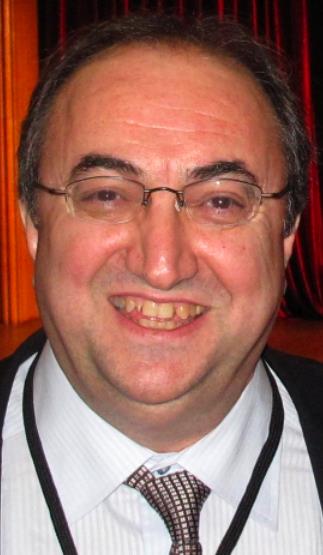 Dr. Alp received BSc and MSc degrees from the Middle East Technical University in Ankara, and PhD from Southern Illinois University. He is a staff member at Argonne National Laboratory since 1984. He worked with the first group of physicists to prepare the scientific case for the Advanced Photon Source. He is known for his work in nuclear resonant x-ray spectroscopy using synchrotron radiation since 1980. He formed the inelastic x-ray scattering group at the APS, and he was responsible for the design and construction of the inelastic x-ray scattering beamlines.
Dr. Alp received BSc and MSc degrees from the Middle East Technical University in Ankara, and PhD from Southern Illinois University. He is a staff member at Argonne National Laboratory since 1984. He worked with the first group of physicists to prepare the scientific case for the Advanced Photon Source. He is known for his work in nuclear resonant x-ray spectroscopy using synchrotron radiation since 1980. He formed the inelastic x-ray scattering group at the APS, and he was responsible for the design and construction of the inelastic x-ray scattering beamlines.
Dr. Alp was a member of Canadian Light Source Science Advisory Committee between 1999-2009. He was the co-chair of the first Scientific Committee for the SESAME project in Jordan (1999-2004), and helped write the scientific case for a synchrotron source in the Middle East, organized early workshops to develop a scientific user community. He continues to serve as a member of the Scientific Advisory Committees of SESAME. Dr. Alp is the chair of the International Science Advisory Committee for the Turkish Accelerator Center. He participates in many national and international panels, and advisory committees. He hosts international scientists and directs PhD theses for graduate students. He has published over 300 papers, book chapters, and organized and chaired international many conferences, summer schools and workshops. He was a visiting professor at Bilkent University, University of Illinois at Urbana Champaign, and at Northern Illinois University.
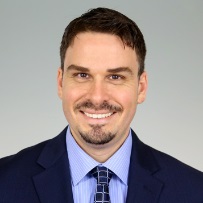 Hasan Ayaz is a Professor at Drexel University's School of Biomedical Engineering, Science & Health Systems; and a core member of the Cognitive Neuroengineering and Quantitative Experimental Research Collaborative. He received his BSc. in Electrical and Electronics Engineering at Boğaziçi University and received PhD in Biomedical Engineering in 2010 from Drexel University. For more than two decades, he worked on the development of miniaturized continuous wave near infrared spectroscopy systems focusing on neuroimaging. He has developed tools for monitoring brain that is now utilized routinely for clinical and field research in university, governmental and corporate labs. He also led the software development of the first optical-brain-monitoring medical device, Infrascanner, which is a portable-handheld instrument that utilizes near infrared to detect hematoma in head trauma patients. Dr. Ayaz’s research involves understanding the neural mechanisms related to human cognitive, and motor functioning with a focus on real-world contexts, mobile neuroimaging, and neuroengineering approaches for neuroergonomics applications. His research has been funded by federal agencies, corporate partners and foundations, and output 200+ publications.
Hasan Ayaz is a Professor at Drexel University's School of Biomedical Engineering, Science & Health Systems; and a core member of the Cognitive Neuroengineering and Quantitative Experimental Research Collaborative. He received his BSc. in Electrical and Electronics Engineering at Boğaziçi University and received PhD in Biomedical Engineering in 2010 from Drexel University. For more than two decades, he worked on the development of miniaturized continuous wave near infrared spectroscopy systems focusing on neuroimaging. He has developed tools for monitoring brain that is now utilized routinely for clinical and field research in university, governmental and corporate labs. He also led the software development of the first optical-brain-monitoring medical device, Infrascanner, which is a portable-handheld instrument that utilizes near infrared to detect hematoma in head trauma patients. Dr. Ayaz’s research involves understanding the neural mechanisms related to human cognitive, and motor functioning with a focus on real-world contexts, mobile neuroimaging, and neuroengineering approaches for neuroergonomics applications. His research has been funded by federal agencies, corporate partners and foundations, and output 200+ publications.
Dr. Ayaz’s volunteer services to Turkish American community started in his first years as a PhD student. He has co-founded Drexel Turkish Student Association and served as its first president in 2006-2007. He has been serving TASSA in various capacities, as the student representative at the board from 2007 to 2009, later in technical committees and IT committee chair; and he was Vice-President of TASSA.
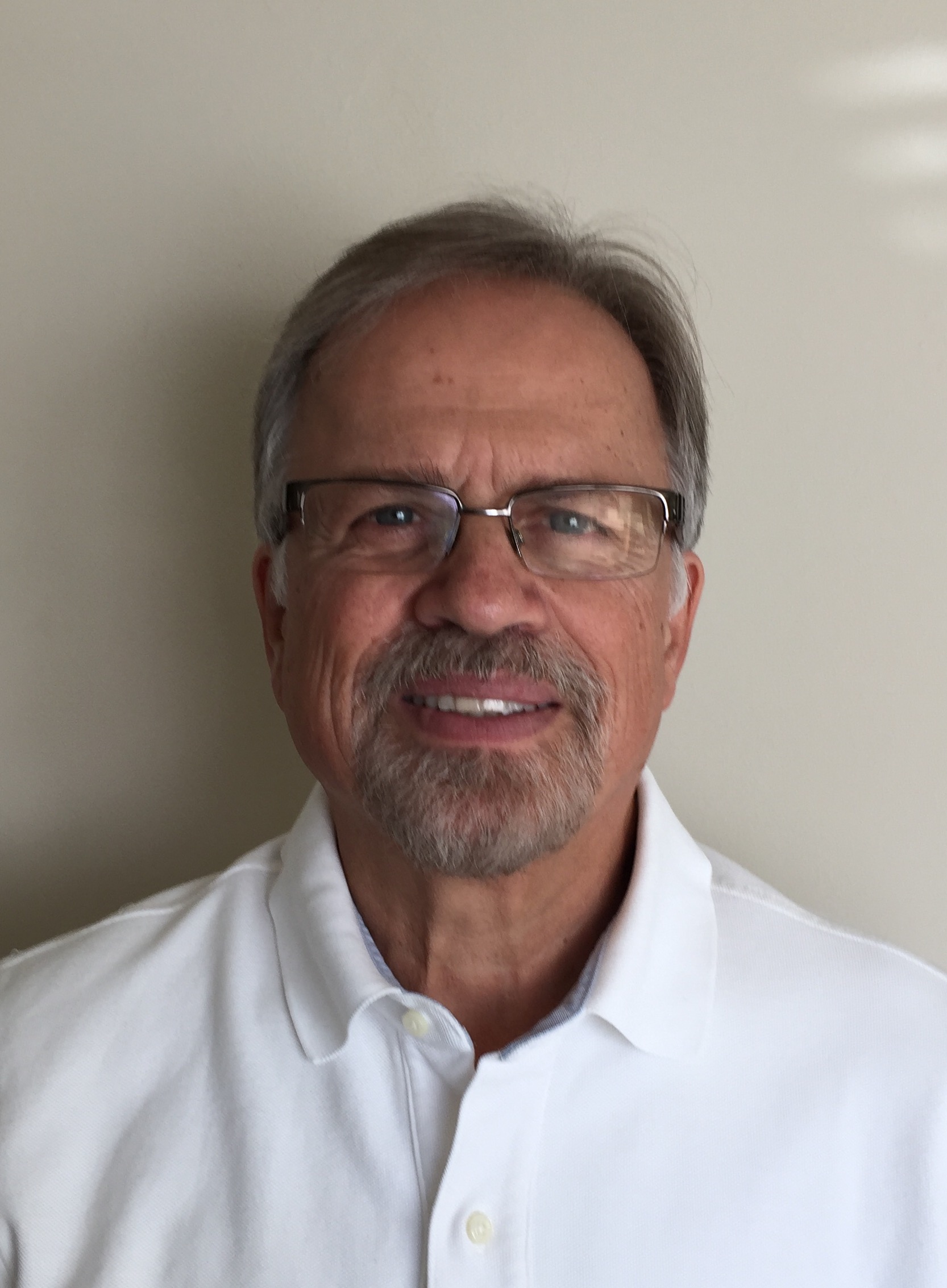 Dr. Bulent Basol has more than 35 years of experience in the fields of PV and semiconductors. He started his career at Monosolar Inc., where he developed a high-efficiency CdTe PV technology, which was sold to BP in1984. This technology yielded the highest-efficiency thin-film PV modules at that time. Subsequently, Bulent co-founded ISET Inc. where he innovated both vacuum- and non-vacuum–based techniques for CdTe and CIGS-based thin-film solar cell fabrication, which yielded the first efficient CIGS device produced by a nano-ink–based approach and the first flexible, high–power-density CIGS cell on a polymeric substrate, for which he received an innovation award from NASA. In the 2000-2005 period, Bulent led the research efforts to develop electrochemical processes and tools for integrated circuit manufacturing at NuTool Inc. After the sale of the technology, Bulent co-founded SoloPower Inc. in 2005 and Encore Solar Inc. in 2010, to develop electrodeposition-based CIGS and CdTe solar cell technologies, respectively. At the present time, he is involved with the development of a metrology technique for ultrathin semiconductor layers employed in advanced transistor structures.
Dr. Bulent Basol has more than 35 years of experience in the fields of PV and semiconductors. He started his career at Monosolar Inc., where he developed a high-efficiency CdTe PV technology, which was sold to BP in1984. This technology yielded the highest-efficiency thin-film PV modules at that time. Subsequently, Bulent co-founded ISET Inc. where he innovated both vacuum- and non-vacuum–based techniques for CdTe and CIGS-based thin-film solar cell fabrication, which yielded the first efficient CIGS device produced by a nano-ink–based approach and the first flexible, high–power-density CIGS cell on a polymeric substrate, for which he received an innovation award from NASA. In the 2000-2005 period, Bulent led the research efforts to develop electrochemical processes and tools for integrated circuit manufacturing at NuTool Inc. After the sale of the technology, Bulent co-founded SoloPower Inc. in 2005 and Encore Solar Inc. in 2010, to develop electrodeposition-based CIGS and CdTe solar cell technologies, respectively. At the present time, he is involved with the development of a metrology technique for ultrathin semiconductor layers employed in advanced transistor structures.
Bulent Basol received a BS in electrical engineering from Bogazici University, Istanbul, Turkey, and a PhD in solid-state electronics from the University of California, Los Angeles. He has 167 issued US patents and over 100 publications.
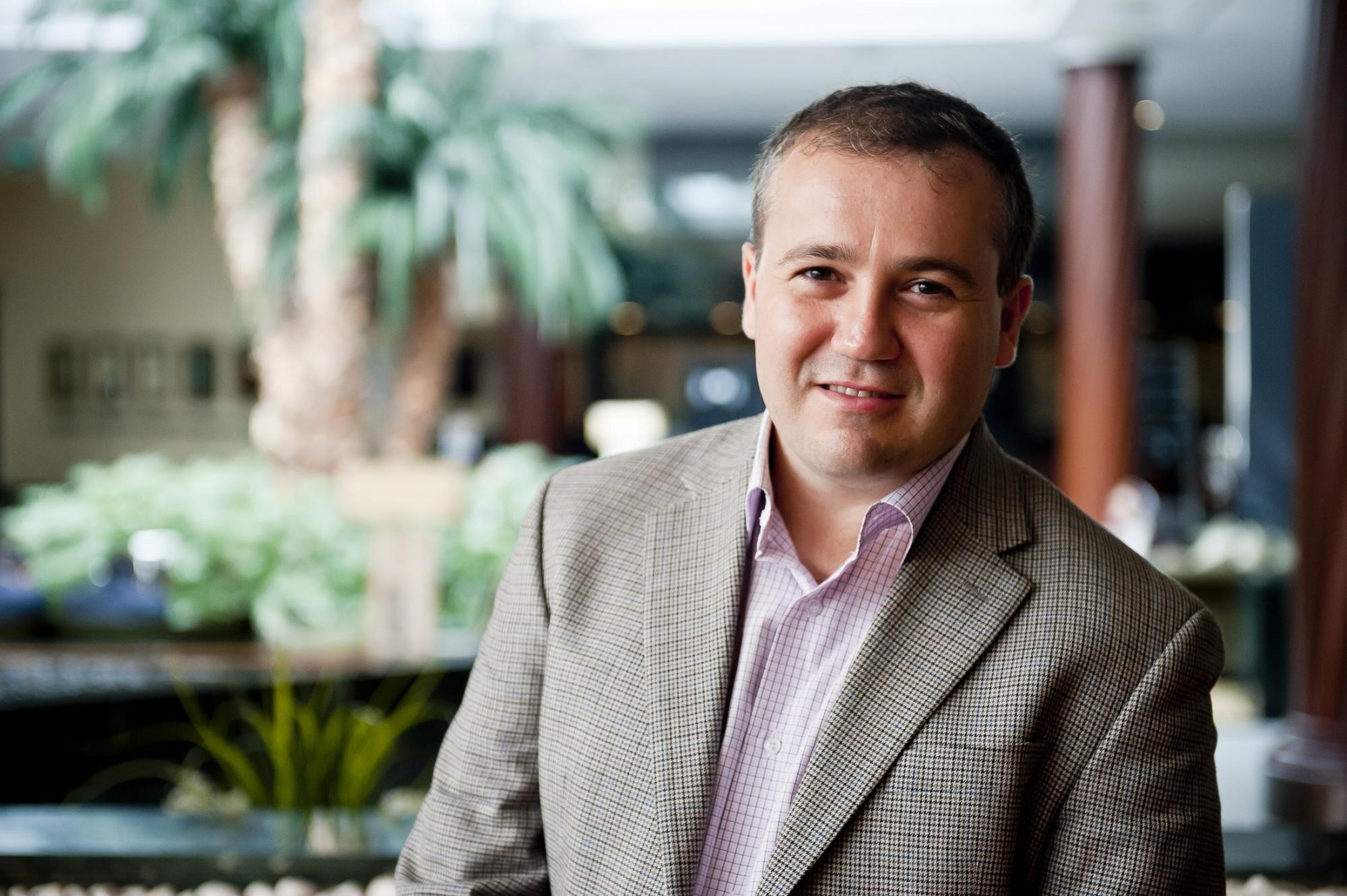 Dr. Utkan Demirci is a professor with tenure at Stanford University School of Medicine, and serves as the interim Director and Division Chief at the Canary Center for Cancer Early Detection of the Department of Radiology. He received his PhD from Stanford University in Electrical Engineering in 2005 as well as M.S. degrees in 2001 in Electrical Engineering, and in Management Science and Engineering in 2005. As his most important contribution, he has mentored and trained hundreds of successful scientists, entrepreneurs and academicians. As a result of these various contributions to science and engineering, he has been humbled by several honors including the NSF CAREER Award, IEEE EMBS Early Career Award. He was named as a fellow-elect of the AIMBE, and Distinguished Investigator of the Academy for Radiology and Biomedical Imaging Research. His lab collaborates with over 50 research groups and industry partners around the world. He has published over 200 peer-reviewed journal publications, 24 book chapters, 4 edited books, and more than 200 abstracts and proceedings. He holds over 25 patents and disclosures pending or granted and serves as an editorial board member for various peer-reviewed journals. His group focuses on developing innovative point-of-care technologies and creating microfluidic platforms for early cancer detection with broad applications to multiple diseases including infertility and HIV. Dr. Demirci’s seminal work in microfluidics has led to the development of innovative FDA approved platform technologies in medicine. His inventions have been licensed to numerous companies. He has co-founded several startups including DxNow, LevitasBio, MercuryBio and Koek Biotech and serves as advisor to multiple early stage companies. He holds several FDA approved and CE marked technologies that have been widely used by fertility clinics with assisted reproductive technologies leading to over 10,000 live child births globally.
Dr. Utkan Demirci is a professor with tenure at Stanford University School of Medicine, and serves as the interim Director and Division Chief at the Canary Center for Cancer Early Detection of the Department of Radiology. He received his PhD from Stanford University in Electrical Engineering in 2005 as well as M.S. degrees in 2001 in Electrical Engineering, and in Management Science and Engineering in 2005. As his most important contribution, he has mentored and trained hundreds of successful scientists, entrepreneurs and academicians. As a result of these various contributions to science and engineering, he has been humbled by several honors including the NSF CAREER Award, IEEE EMBS Early Career Award. He was named as a fellow-elect of the AIMBE, and Distinguished Investigator of the Academy for Radiology and Biomedical Imaging Research. His lab collaborates with over 50 research groups and industry partners around the world. He has published over 200 peer-reviewed journal publications, 24 book chapters, 4 edited books, and more than 200 abstracts and proceedings. He holds over 25 patents and disclosures pending or granted and serves as an editorial board member for various peer-reviewed journals. His group focuses on developing innovative point-of-care technologies and creating microfluidic platforms for early cancer detection with broad applications to multiple diseases including infertility and HIV. Dr. Demirci’s seminal work in microfluidics has led to the development of innovative FDA approved platform technologies in medicine. His inventions have been licensed to numerous companies. He has co-founded several startups including DxNow, LevitasBio, MercuryBio and Koek Biotech and serves as advisor to multiple early stage companies. He holds several FDA approved and CE marked technologies that have been widely used by fertility clinics with assisted reproductive technologies leading to over 10,000 live child births globally.
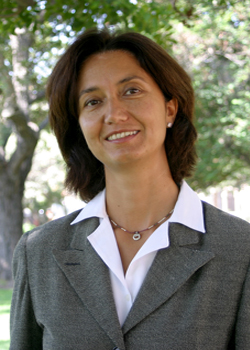 Ayse Imrohoroglu is a macroeconomist who specializes in understanding business cycles, inflation, unemployment insurance, and social security. Her work has been published in the American Economic Review, Journal of Political Economy, Quarterly Journal of Economics, Review of Economic Studies, and Journal of Monetary Economics. She received a National Science Foundation grant in 1992 to investigate the effects of social security programs on economies with imperfect insurance. From 2004 to 2007, she was Chair of the Department of Finance and Business Economics.
Ayse Imrohoroglu is a macroeconomist who specializes in understanding business cycles, inflation, unemployment insurance, and social security. Her work has been published in the American Economic Review, Journal of Political Economy, Quarterly Journal of Economics, Review of Economic Studies, and Journal of Monetary Economics. She received a National Science Foundation grant in 1992 to investigate the effects of social security programs on economies with imperfect insurance. From 2004 to 2007, she was Chair of the Department of Finance and Business Economics.
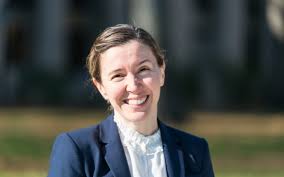 Dr. Asu Ozdaglar received the B.S. degree from the Middle East Technical University in 1996, and the S.M. and Ph.D. degrees from the Massachusetts Institute of Technology (MIT), in 1998 and 2003, respectively.
Dr. Asu Ozdaglar received the B.S. degree from the Middle East Technical University in 1996, and the S.M. and Ph.D. degrees from the Massachusetts Institute of Technology (MIT), in 1998 and 2003, respectively.
She’s the Mathworks Professor of Electrical Engineering and Computer Science in the EECS Department at the MIT. She’s the Department Head of EECS and the Deputy Dean of Academics in the Schwarzman College of Computing. Her research expertise includes optimization theory, distributed optimization and control, and network analysis.
Her awards include a Microsoft fellowship, NSF Career award, 2008 Donald P. Eckman award of the American Automatic Control Council, Class of 1943 Career Development Chair, inaugural Steven and Renee Innovation Fellowship, and 2014 Spira teaching award.
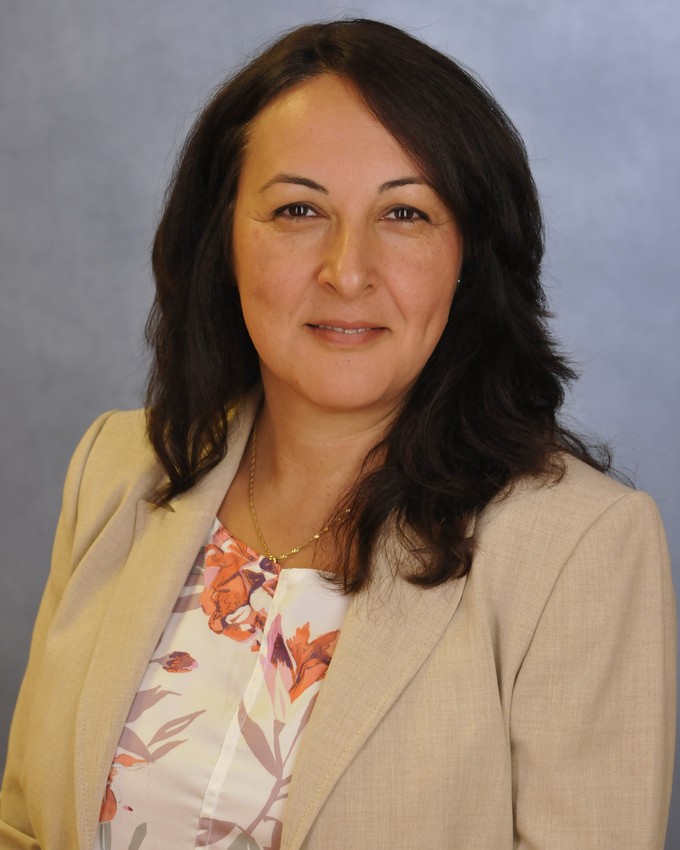 Dr. Tamerler serves as Associate Dean for Research, School of Engineering at the University of Kansas (KU). She is the Wesley Cramer Professor in Mechanical Engineering Department and in Bioengineering Program where she also serves as the Director of Biomaterials and Tissue Engineering Track. Tamerler is the Director of Bio-mediated and Biomimetic Materials at the Institute for Bioengineering Research at the KU. Prior to moving to University of Kansas, she was a Professor (Research) in Materials Science and Engineering Department and Assistant Director of the Genetically-Engineered Materials Science & Engineering Center (GEMSEC), an NSF-MRSEC, at the University of Washington. Between 2002-2010, she was a Professor and the Chair of Molecular Biology and Genetics Department at the Istanbul Technical University, concurrently has been a Visiting Professor in the Materials Science and Engineering Department at the University of Washington. While at ITU, Tamerler founded and served as the Director of the Molecular Biology-Genetics and Biotechnology Research Center, a multi-disciplinary initiative established in 2004 until she joined to University of Washington as a full time faculty. She is a graduate of Chemical Engineering Department at the Bogazici University. Combining the molecular biology to materials science, Dr. Tamerler’s research focuses on the engineering of biomolecular systems for diverse applications including Biology Enabled Nanotechnologies, Biofabrication, Bioadditive Manufacturing: Bioprinting and Restorative and Regenerative Materials Design. She has published more than 150 science indexed publications and several patents, her publications received >7250 citations (H-Index: 41). Dr. Tamerler has many awards and many honors including The Lifetime Achievement Recognition Award in 2017 by Marquis Who is Who; Miller Professional Development & Recognition Award in 2017 and Bellow Scholar Award in 2016 at the University of Kansas.
Dr. Tamerler serves as Associate Dean for Research, School of Engineering at the University of Kansas (KU). She is the Wesley Cramer Professor in Mechanical Engineering Department and in Bioengineering Program where she also serves as the Director of Biomaterials and Tissue Engineering Track. Tamerler is the Director of Bio-mediated and Biomimetic Materials at the Institute for Bioengineering Research at the KU. Prior to moving to University of Kansas, she was a Professor (Research) in Materials Science and Engineering Department and Assistant Director of the Genetically-Engineered Materials Science & Engineering Center (GEMSEC), an NSF-MRSEC, at the University of Washington. Between 2002-2010, she was a Professor and the Chair of Molecular Biology and Genetics Department at the Istanbul Technical University, concurrently has been a Visiting Professor in the Materials Science and Engineering Department at the University of Washington. While at ITU, Tamerler founded and served as the Director of the Molecular Biology-Genetics and Biotechnology Research Center, a multi-disciplinary initiative established in 2004 until she joined to University of Washington as a full time faculty. She is a graduate of Chemical Engineering Department at the Bogazici University. Combining the molecular biology to materials science, Dr. Tamerler’s research focuses on the engineering of biomolecular systems for diverse applications including Biology Enabled Nanotechnologies, Biofabrication, Bioadditive Manufacturing: Bioprinting and Restorative and Regenerative Materials Design. She has published more than 150 science indexed publications and several patents, her publications received >7250 citations (H-Index: 41). Dr. Tamerler has many awards and many honors including The Lifetime Achievement Recognition Award in 2017 by Marquis Who is Who; Miller Professional Development & Recognition Award in 2017 and Bellow Scholar Award in 2016 at the University of Kansas.
Dr. Tamerler has been awarded visiting scientist and professorship positions at the University of Westminster (UK) and the University of Nagoya (Japan), respectively. She is inducted as Fellow of American Association for the Advancement of Science (AAAS) and AIMBE (American Institute for Medical and Biological Engineers). She is also a principle member of the Turkish Academy of Sciences (TUBA). She has been serving to TASSA in different roles including Vice-President (2010-2014) and Board of Directors (2014-2020).